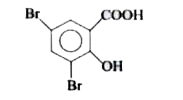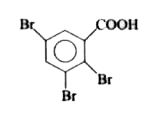Acid used in formation of H2 gas?
Concentrated H2SO4
Dilute H3PO4
Dilute H2CO3
Dilute HCl
The correct Answer is:D
To determine the acid used in the formation of hydrogen gas (H₂), we can analyze the options provided and understand the reactions involved.
1. Identify the Acids: The question provides four options which are different acids. We need to evaluate each one to see if it can produce hydrogen gas when reacted with a suitable metal.
2. Evaluate Dilute Hydrochloric Acid (HCl):
- Dilute HCl is a strong acid that can react with metals like zinc (Zn) or magnesium (Mg).
- The reaction can be represented as:
Zn+2HCl→ZnCl2+H2↑
- This reaction produces hydrogen gas, indicating that dilute HCl can indeed be used to form H₂.
3. Evaluate Concentrated Sulfuric Acid (H₂SO₄):
- Concentrated H₂SO₄ is a strong acid but it does not produce hydrogen gas when reacting with metals. Instead, it produces sulfur dioxide (SO₂).
- Therefore, concentrated H₂SO₄ cannot be the correct answer.
4. Evaluate Dilute Phosphoric Acid (H₃PO₄):
- Dilute H₃PO₄ is a weak acid and does not readily react with metals to produce hydrogen gas.
- Thus, it cannot be the correct answer.
5. Evaluate Dilute Carbonic Acid (H₂CO₃):
- Dilute H₂CO₃ is also a weak acid and does not produce hydrogen gas when reacting with metals.
- Therefore, this option is also incorrect.
6. Conclusion: After evaluating all options, we find that only dilute hydrochloric acid (HCl) is capable of producing hydrogen gas when reacted with metals. Therefore, the correct answer is option D.
Final Answer:
The acid used in the formation of H₂ gas is dilute HCl (option D).
---
- Dilute HCl is a strong acid that can react with metals like zinc (Zn) or magnesium (Mg).
- The reaction can be represented as:
Zn+2HCl→ZnCl2+H2↑
- This reaction produces hydrogen gas, indicating that dilute HCl can indeed be used to form H₂.
- Concentrated H₂SO₄ is a strong acid but it does not produce hydrogen gas when reacting with metals. Instead, it produces sulfur dioxide (SO₂).
- Therefore, concentrated H₂SO₄ cannot be the correct answer.
- Dilute H₃PO₄ is a weak acid and does not readily react with metals to produce hydrogen gas.
- Thus, it cannot be the correct answer.
- Dilute H₂CO₃ is also a weak acid and does not produce hydrogen gas when reacting with metals.
- Therefore, this option is also incorrect.
The acid used in the formation of H₂ gas is dilute HCl (option D).
Topper's Solved these Questions
Similar Questions
Bacteria involved in formation of gobar gas are
View SolutionCalculate the heat of formation of Benzene. The reaction is given below - 6C(s)+3H2→C6H6(l) and - 3268, - 393.5 nd -285.8 kJ are the heat of combustion of Benzene, heat of formation of CO2 and heat of formation of H2O(l) respectively.
View Solution
Knowledge Check
The action of Br2/H2O on salicylic acid results in the formation of :
A B
B C
C D
D
Explain the following.
a. Hydrated barium peroxide is used in the preparation of H2O2 instead of anhydrous barium peroxide.
b. Phosphoric acid is preferred to sulphuric acid in the preparation of H2O2 from barium peroxide..
View SolutionCalculate the ethalpy of combustion of ethylene (g) to form CO2 (gas) and H2O (gas) at 298 K and 1 atmospheric pressure. The enthalpies of formation of CO2,H2O and C2H4 are −393.7,−241.8+52.3 kJ per mole respectively.
View SolutionThe heat of formation of H2O(l) is −68.0 kcal, the heat of formation of H2O(g) can logically be
View SolutionThe heat of combustion of hydrocarbon CxHy is ''a'' calories and heat of formation of CO2andH2O are ''b'' and 'c' calories respectively then the heat of formation of hydrocarbon C8H is (in calories)
View SolutionOxidative decarboxylation of pyruvic acid results in the formation of
I. Acetyl CoA , II. CO2
III. ATP , IV. NADH+H+
View SolutionThe enthalpy of formation of H2O(l) is -280.70 kJ/mol and enthalpy of neutralisation of a strong acid and strong base is -56.70 kJ/mol. What is the enthalpy of formation of OH− ions?
View SolutionThe enthalpy of formation of H2O(l) is −285KJmol−1 and enthalpy of neutralization of a stron acid and a strong bas is −55KJmol−1. What is the enthalpy of formation of OH− ions?
View Solution